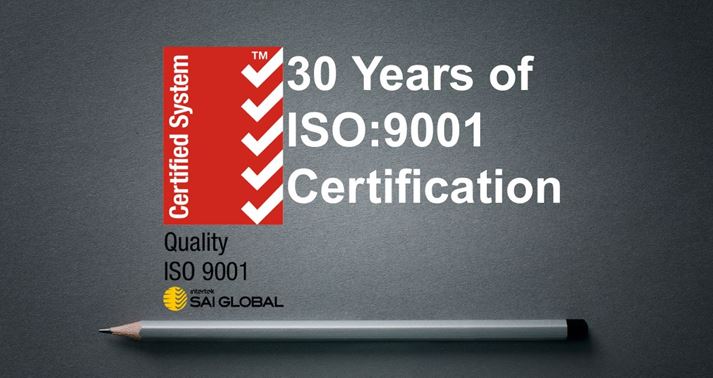Skills-Based Hiring in Australia: Boosting Diversity and Transforming Company Culture
20 February, 2025

A smarter way to build inclusive, high-performing teams
In a changing employment landscape, many Australian organisations are moving beyond traditional recruitment models to embrace skills-based hiring - a more inclusive, strategic approach that focuses on what candidates can do, rather than where they’ve worked or studied.
At McArthur, we believe this shift is not just timely but necessary. Skills-based hiring drives real impact expanding talent pools, improving workplace diversity, and building stronger, more adaptable teams.
Why Skills Matter More Than Ever
Traditional hiring practices, based on degrees, job titles or tenure, often fail to capture a candidate’s true potential. They can also create unintended barriers for highly capable people, particularly those from underrepresented backgrounds.
Skills-based hiring removes these barriers by prioritising the core capabilities, attributes and values required to succeed in a role. This inclusive lens helps employers:
- Access more diverse talent pools
- Make fairer, evidence-based hiring decisions
- Build a more resilient and future-ready workforce
Recent research by McKinsey & Company confirms the benefits: organisations in the top quartile for ethnic and gender diversity are significantly more likely to outperform financially - by up to 36% and 25% respectively.
A Pathway to Greater Diversity and Inclusion
In Australia, many talented individuals face barriers to employment due to non-traditional career paths, career breaks, or limited access to formal qualifications. This includes people with disability, First Nations people, and those re-entering the workforce. By focusing on core capabilities and transferable skills, skills-based hiring offers a more inclusive pathway to employment and helps organisations access untapped potential.
Skills-based hiring is a powerful solution.
It opens doors to candidates with vocational training, micro-credentials, lived experience, or alternative career pathways. It also reduces reliance on unconscious bias by shifting focus to real-world capabilities and practical assessments.
The Diversity Council Australia’s 2023 Inclusion@Work Index found that inclusive teams are 10x more likely to be highly effective, and 4x more likely to meet financial targets. The link between inclusion, performance and culture is no longer up for debate.
Culture Starts with Who You Hire
Harvard Business Review’s 2023 insights into skills-first recruitment show a clear connection between this approach and positive workplace culture. Teams hired for ability and values alignment tend to be more engaged, collaborative and loyal.
Just as importantly, skills-first workplaces promote:
- Continuous learning: Employees feel encouraged to grow and apply new skills.
- Psychological safety: Diverse voices are valued and heard.
- Agility: Teams can adapt more quickly to market changes and innovation demands.
At McArthur, we see these benefits play out daily, especially in sectors like Health Support, Aged Care and Government, where workforce adaptability and inclusion are essential.
Local Momentum is Building
Across Australia, both government and industry are embracing skills-first strategies.
- Jobs and Skills Australia is advocating for national skills-based workforce planning, particularly across education, care and community sectors.
- Recruitment platforms like SEEK and LinkedIn now offer skills-based search and filtering capabilities.
- A 2023 PwC Australia report highlighted that organisations using skills-first models are better equipped for digital disruption and economic volatility.
This is not just theory, it’s already shaping smarter hiring strategies across the country.
How to Get Started: Practical Steps for Employers
Moving to a skills-first recruitment model doesn’t require an overhaul — just a shift in focus. Here’s how to begin:
- Review job descriptions: Focus on core skills, capabilities and outcomes. Remove unnecessary degree or experience requirements.
- Use structured assessments: Introduce work samples, simulations or problem-solving tasks to assess candidate skills objectively.
- Expand your sourcing strategies: Engage with community networks and recruitment partners who connect with diverse talent pools.
- Train hiring managers: Provide coaching on inclusive interview techniques and how to evaluate for skills and values fit.
- Track your progress: Monitor recruitment outcomes, internal mobility and team performance over time.
McArthur: Experts in Skills-First Recruitment
With over 55 years’ experience and deep sector expertise, McArthur is uniquely positioned to help Australian employers adopt skills-based hiring strategies that deliver long-term results. We bring:
- Industry-specific knowledge across Early Childhood, Aged Care, Government, Commercial and more
- Inclusive talent pools, developed through trusted community connections
- Tailored recruitment solutions that align with your organisation’s goals, culture and future needs
By putting skills first, you not only find better candidates — you create better teams.
Ready to build a more inclusive and productive workforce?
Contact McArthur to learn how we can help you design and implement a skills-first recruitment strategy tailored to your organisation.
Share this Article
Related Articles
McArthur Celebrates 30 Years of ISO 9001 Certification
In June 2025, McArthur proudly marks 30 years of ISO 9001 certification, a milestone that reflects our commitment to quality, consistency, and continuous improvement in recruitment and HR services across Australia. Three decades strong, and still evolving.
Learn MoreUnlocking Talent: The Strategic Value of Psychometric Testing in Hiring and Development
Finding and nurturing top talent demands more than intuition. Discover how psychometric testing empowers organisations to make smarter hiring decisions, unlock leadership potential, and build resilient, high-performing teams for long-term success.
Learn MoreCEO and Executive Reviews: Why Independent Assessment Strengthens Leadership
Independent CEO and Executive Performance Reviews drive leadership excellence, strategic alignment, and growth. Discover how McArthur Talent Architects’ expert-led, future-focused assessments can strengthen your organisation's leadership capability.
Learn MoreThe Power of Listening: How Employee Engagement Surveys Drive Organisational Success
Employee engagement surveys unlock the full potential of your workforce. Discover how listening to employee voices drives innovation, retention, and long-term success. Build a thriving culture with McArthur Talent Architects' expert guidance.
Learn More



